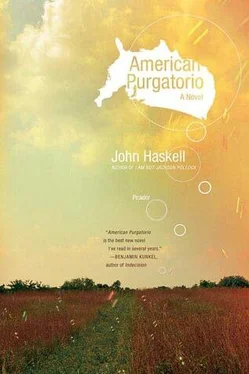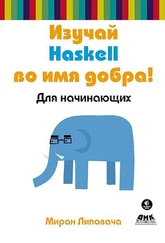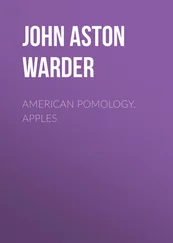John Haskell - American Purgatorio
Здесь есть возможность читать онлайн «John Haskell - American Purgatorio» весь текст электронной книги совершенно бесплатно (целиком полную версию без сокращений). В некоторых случаях можно слушать аудио, скачать через торрент в формате fb2 и присутствует краткое содержание. Год выпуска: 2006, Издательство: Picador, Жанр: Современная проза, на английском языке. Описание произведения, (предисловие) а так же отзывы посетителей доступны на портале библиотеки ЛибКат.
- Название:American Purgatorio
- Автор:
- Издательство:Picador
- Жанр:
- Год:2006
- ISBN:нет данных
- Рейтинг книги:3 / 5. Голосов: 1
-
Избранное:Добавить в избранное
- Отзывы:
-
Ваша оценка:
- 60
- 1
- 2
- 3
- 4
- 5
American Purgatorio: краткое содержание, описание и аннотация
Предлагаем к чтению аннотацию, описание, краткое содержание или предисловие (зависит от того, что написал сам автор книги «American Purgatorio»). Если вы не нашли необходимую информацию о книге — напишите в комментариях, мы постараемся отыскать её.
Los Angeles Times
American Purgatorio — читать онлайн бесплатно полную книгу (весь текст) целиком
Ниже представлен текст книги, разбитый по страницам. Система сохранения места последней прочитанной страницы, позволяет с удобством читать онлайн бесплатно книгу «American Purgatorio», без необходимости каждый раз заново искать на чём Вы остановились. Поставьте закладку, и сможете в любой момент перейти на страницу, на которой закончили чтение.
Интервал:
Закладка:
When I come out of the bathroom, having been in a little world of my own thoughts, I’m aware that those thoughts have disconnected me from the world I’m standing in now. Like flies around my head, they’re distracting me. There’s always some thought, I think, and I try to push through the thoughts and come into the world. Which I do, briefly, looking at Linda, who’s surrounded by pillows, sitting on the bedspread-covered sofa. I don’t feel like sitting quite yet so I stand, with my weight on one leg, leaning against the fireplace.
The old man, Mr. V., is sitting in his comfortable chair, but he’s sitting like a young man, legs spread, hands on thighs, looking intently and openly into Linda. I say “into” her because it’s not just into her eyes. He’s leaning toward her and you can feel the attention he’s sending to her or washing over her. He’s probably in his sixties or seventies or even his eighties and yet it’s difficult to judge. He’s thin, but his cheeks have the ruddiness of someone who’s lived his life outside.
There’s a bond between this man and Linda, and I don’t know what kind of bond, but it’s a bond. Linda occasionally turns to me, smiles, then turns back to the old man. I drink my tea. I’m still a married man, and I know I’m a married man, and I’ve made no overtures toward this Linda person, this person who means nothing to me, and may in fact be the villain in the story I’m right in the middle of.
I have, not only the memory of Anne, but the possibility of a future life with her. I believe in that future, and because Linda isn’t Anne, I’m not really that interested in her. But because the man is interested in her, and she’s obviously interested in the man, I’m starting to see the ease and fellowship happening in front of my face as a threat.
I try to say a few words or ask a few questions but I can’t break the not-quite-palpable beam of emotional fellowship passing between them. It’s not my emotional fellowship, and although I would want to be part of it, it seems to me a fellowship completely unattainable, or at least unenterable, and I feel now a definite wall separating me from what I want.
And maybe Linda can see this, because she stands and suddenly announces that she’s giving me a tour. We walk outside and she begins showing me things, trees and mushrooms, and we walk to the old barn up the hill, a big insulated barn. The small door is unlocked and inside she shows me the cameras that were used when the man was actively photographing bats. The bats are all gone now and the barn and the studio are in disrepair. There are cages and lights and tripods and she explains how the bats would fly down, grab whatever food was offered, and the moment the food was snatched a trigger set off a strobe that flashed light and a photograph was taken.
She takes me into an office part of the barn and shows me photographs of bats, swooping down at millisecond intervals, their claws or talons reaching for morsels of food. Also on the wall, on a different part of the wall, are pictures of people, mainly women, including women in states of partial undress.
There’s one particular photograph of a young woman and her apparently nude body. It’s very artistic. A close-up. She seems to be standing on a beach, but its focus is the woman’s back, with part of her arm and part of her breast and the ripples of her stomach as she bends toward the sand. I can see in the tilt of her neck something about her personality revealed.
At first I don’t say anything, just walk along the wall, photo after photo, black-and-white, and then, when I get to the end, I say, “These are very beautiful.”
“Thank you.”
“Is that you in some of them?”
“Some of them.”
“That one?” I say, referring to the photo of the person bending.
“There’s no beach around here,” she says.
“It looks like you,” I say. Then I realize I have no idea, or only a vague idea, what she looks like, like that. “It could be a sand dune,” I suggest.
“Thank you, but I look nothing like that.” She ushers me away from the photos and out of the room. “There’s an album of photographs,” she says, “back at the house.”
“Who took them?”
“Mr. V.”
“He likes you quite a lot,” I say.
“I love him,” she says. And then she adds, “How can you not?”
5
At a certain point the man suggests that he and I take a tour of the barn, and although I’ve already seen the barn, I agree. We put on our coats, go outside, and it isn’t raining, but the earth is damp, and the trees that have fallen over are soft and moist and rotting. The trail we follow leads up a hill, past rock outcroppings, and eventually to a barn — a different barn than the other barn — and I help the man slide the large wooden door across the entrance to this barn, and we let ourselves in.
“How many barns do you have?” I ask him.
“Just the one,” the man says.
It’s filled with bales of sweet-smelling hay, and as we walk around the inside perimeter of this barn the man occasionally holds out his hand, and to steady him, I take it. He sometimes rests his hand, or the fingers of his hand, on my shoulder, and although it’s just a normal meaningless gesture, I feel it has a kind of meaning, a kind of generosity, and because I am thinking about generosity and looking at the piece of gauze bandage stuck to his face, I’m not sure if I’m hearing what the man is saying.
“War?” I say.
“There’s always a war,” the man says. “Or if there’s not, then it’s coming. Not out there”—and he points to his chest. “Here.”
I’m going to ask him to elaborate but the man moves on. In his mind he’s constantly moving on, not stopping for understanding or for the acknowledgment of understanding. He’s moving, and I follow him.
The wooden planks are unevenly worn around the swirls of knots in the wood. I ask the man, “Do you still have bats?”
“I thought you were the expert on bats,” he says, and he smiles.
And for some reason I smile back. “I thought you were.”
“Well, there you go,” he says, and laughs out loud, in a way that I find infectious. Not the laugh itself but the situation. I don’t really know what, but something is amusing. And although I started out being jealous of his relationship with Linda, it’s hard to be jealous of someone so genial. Although my usual modus would be to envy the man’s seeming happiness, instead I can feel that seeming happiness making me seem to be happy.
I follow him through a narrow door into a structure with another door and we walk through that door and the old man starts climbing up the hay bales stacked in the corner. The barn is in disrepair. “Come on,” he says. And because I don’t feel at the moment like climbing up a stairway of old straw, I ask him, “What’s up there?”
“The view,” he says.
“Of what?”
“It won’t hurt you,” he says, “I promise,” and he holds out his hand.
I would rather not have to depend on a withered old hand but I don’t see a lot of options, so I reach out and the old man indeed pulls me up, into a small attic-like room. He closes the trapdoor and we find ourselves crouching in darkness.
As I wait for my eyes to adjust, I notice that my hands are raised, as if to defend myself. That’s weird, I think, because there’s nothing to be afraid of. I’ve been in pitch-black rooms before, but still, fear is not a logical thing. And it isn’t until my eyes adjust and I can see the source of light that I know where I am and let my hands drop.
A camera obscura is a dark chamber with a hole on one side and that’s what we’re in. Projected against the opposite wall of the room is an image — mainly sky, a few trees — and something about the color of the sky and the depth of the sky, despite the inverted view, makes it seem completely real. The image isn’t large but it’s large enough to hold, in its indistinct frame, the whole world. I’m looking at the image, watching the world it portrays — removed from it and watching it — like watching something die. It seems at that moment like a world of possibility.
Читать дальшеИнтервал:
Закладка:
Похожие книги на «American Purgatorio»
Представляем Вашему вниманию похожие книги на «American Purgatorio» списком для выбора. Мы отобрали схожую по названию и смыслу литературу в надежде предоставить читателям больше вариантов отыскать новые, интересные, ещё непрочитанные произведения.
Обсуждение, отзывы о книге «American Purgatorio» и просто собственные мнения читателей. Оставьте ваши комментарии, напишите, что Вы думаете о произведении, его смысле или главных героях. Укажите что конкретно понравилось, а что нет, и почему Вы так считаете.











